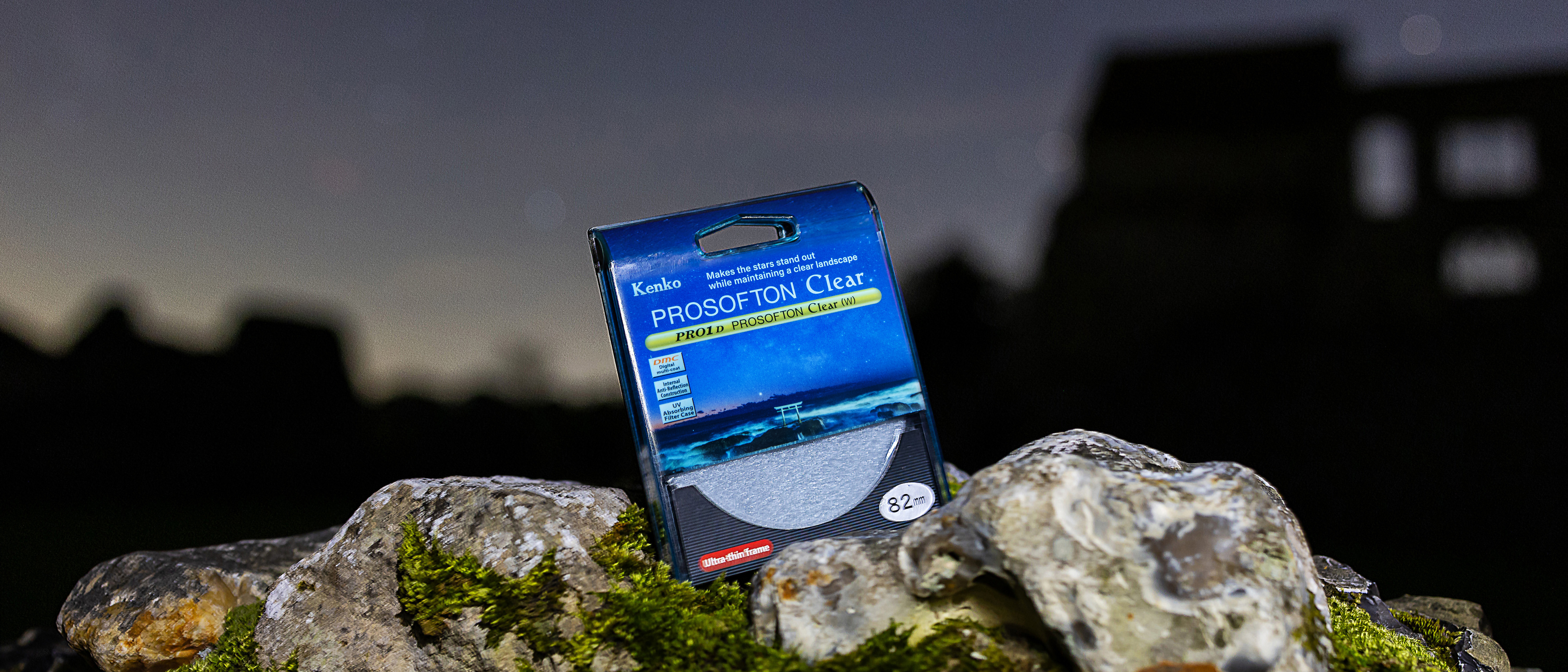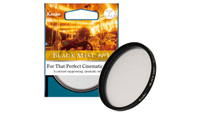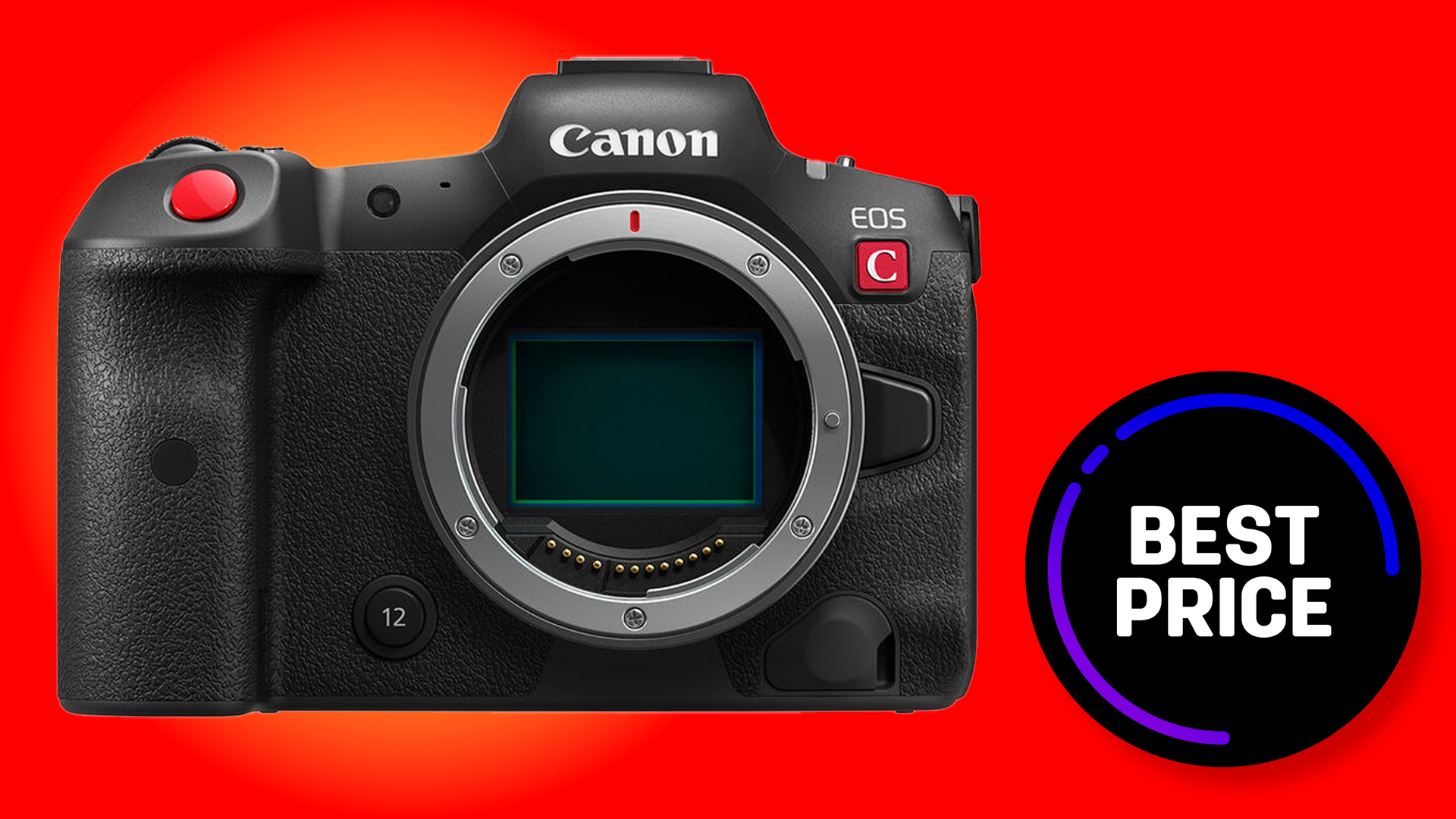Digital Camera World Verdict
The Kenko Prosofton Clear PRO1D (W) does everything it sets out to achieve and in a counter-intuitive way softening the image produces bigger and brighter stars. It's not the ultimate astro filter as it doesn't feature a light pollution cut, but it is very well made, delivers good image quality with sharp foregrounds and is well-suited to cityscapes and soft-focus portraits too, all at an attractive price.
Pros
- +
Premium build quality
- +
Range of filter thread options
- +
Image Quality
- +
Budget-friendly
- +
Good for astro, cityscapes and portraits
Cons
- -
Vignetting can be a problem when stacking multiple filters
- -
Takes up space in your kit bag
- -
Doesn't have a water-repellent coating
- -
No light pollution cut
Why you can trust Digital Camera World
Astro-lovers delight! Kenko’s PRO1D Prosofton Clear (W) filter claims to produce clearer shots of starry skies. It does this by softening the image which may sound counter-intuitive, but by slightly blurring the stars they can appear larger and more prominent in your night sky photographs, or at least that's the theory anyway.
Kenko claims this filter, the Prosofton Clear (W), is designed to deliver ‘optimal’ soft filter results for nightscape photography with just enough softness to bring out detail in starry constellations, yet retain sharp detail in the foreground. Its softening effect is also half that of Kenko’s Prosofton Clear (A) filter.
Kenko also says its image-softening qualities also make the Prosofton Clear a good choice for adding a gentle diffusion and soft glow to cityscapes and portraits too. We got hold of one and headed out to put it to the test...
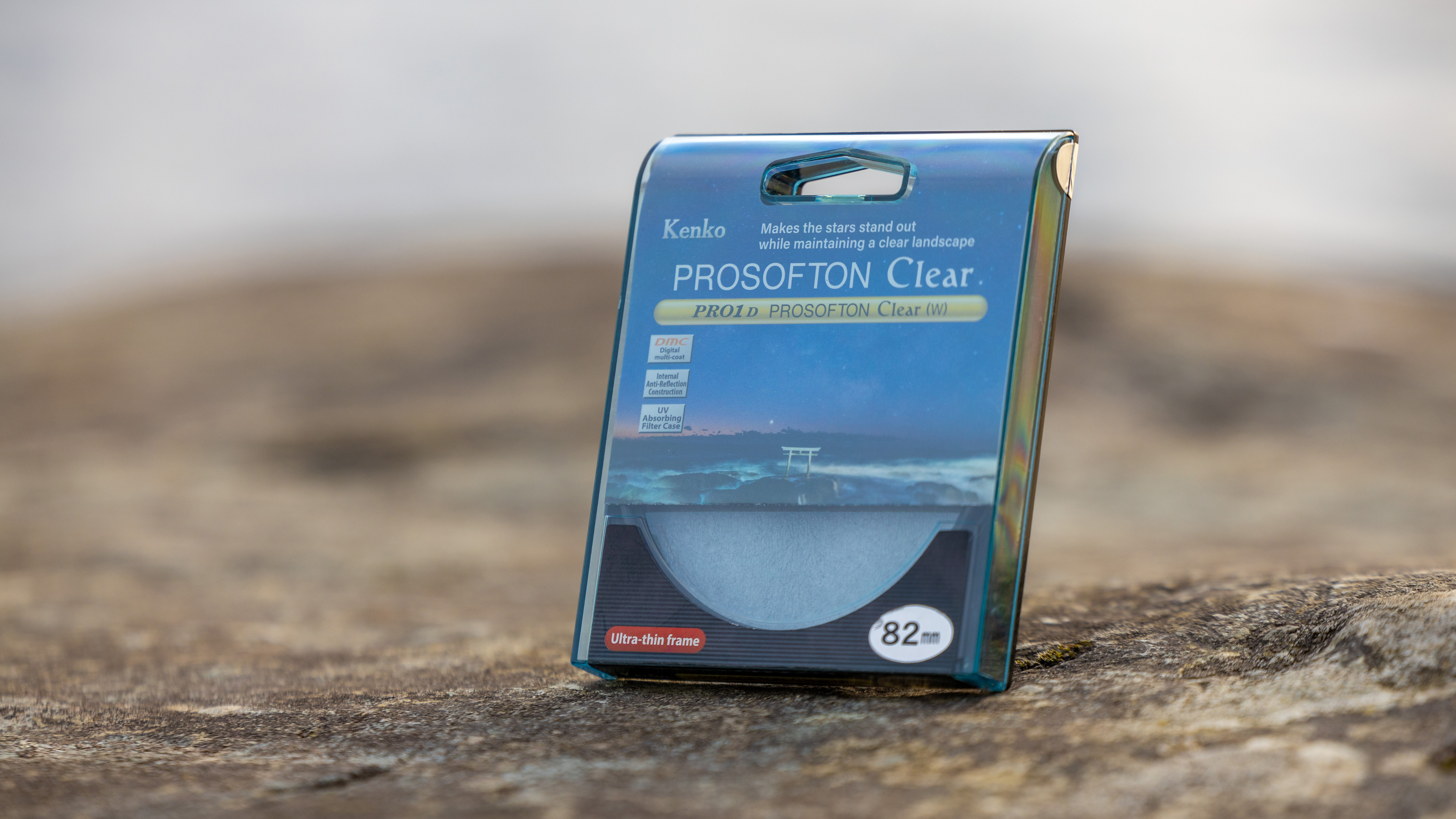
Kenko Prosofton Clear Specifications
| Filter type | Soft effect |
| Mount | Screw-in |
| Thread diameter range (mm) | 49, 52, 55, 58, 62, 67, 72, 77, 82 |
| Filter material | Optical glass |
| Frame material | Aluminum |
| Thickness | 6 mm |
Kenko Prosofton Clear Build & Handling
The Kenko Prosofton Clear PRO1D (W) is available in regular filter sizes spanning between 49mm and 82mm. The largest 82mm version costs around $52(US) or £52 on Amazon, though you’ll pay less if you opt for a smaller size (about $20/£20 for the smallest 49mm option), this of course depends on the filter thread of your lens.
Whichever model you go for the filter has an ‘ultra-thin’ frame that is just 6mm deep (4mm when mounted), so we’re glad to report we had no issues with vignetteing even when shooting ultra-wide angle at 16mm on our full-frame Canon EOS R6 Mark II test camera, though this could become an issue if you wanted to stack multiple filters together and shoot at wider focal lengths.
Some of the best lenses for astrophotography such as the Sigma 14mm f/1.4 DG DN | Art have a bulbous front element so screw-in filters can’t be attached. But most allow sheet-type filters to be rear-mounted at the back of the lens. The good news is that Kenko’s Prosofton Clear is also available to buy in sheet form as a set of three in varying strengths (see below).
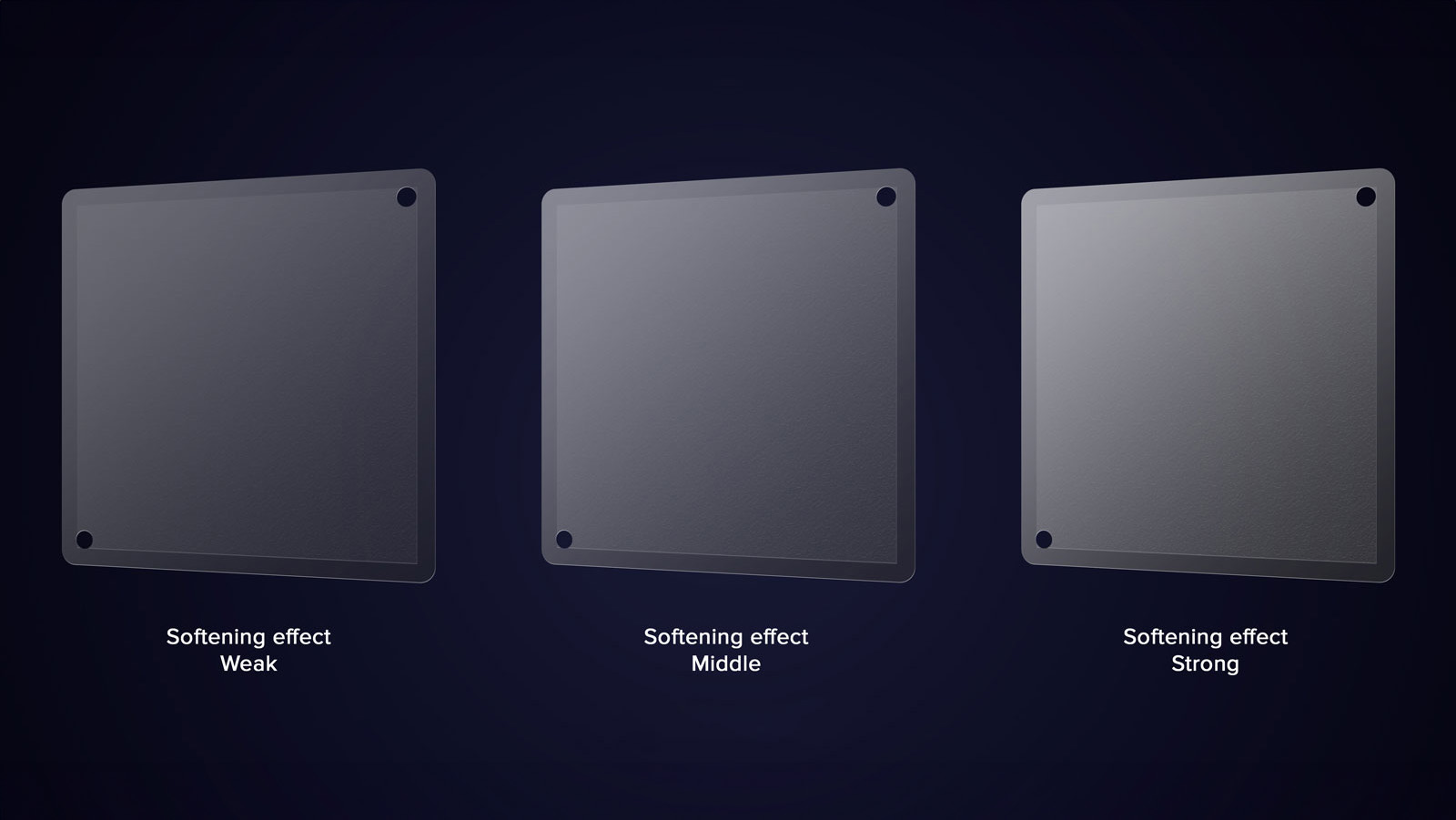
Like many of Kenko’s premium filters such as the Black Mist No.1 filter I reviewed earlier this year, the Prosofton Clear is made in Japan and has a high build quality. It's made from premium materials with an aluminum frame, the frame is also partially knurled to give you some decent grip when screwing it into the front filter thread of your lens.
It also comes with a plastic UV-absorbing hard case to keep it protected when not in use or in transit to your location.
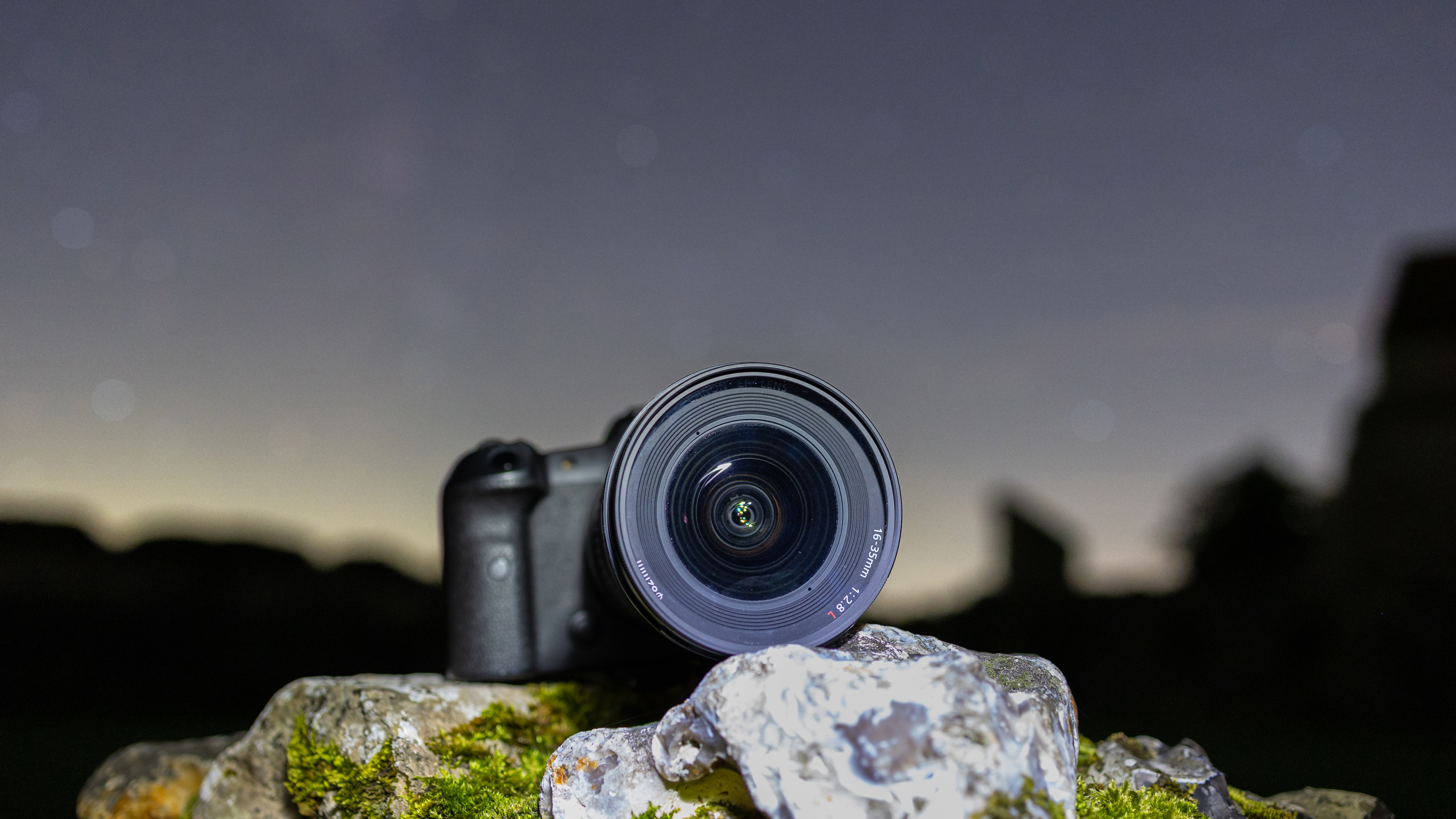
The glass used is Kenko’s ‘optical glass’, which is the same quality as the Black Mist No.1, Black Mist No.05, White Mist, and Twinkle Star filters. Like those filters, the Prosofton Clear features an anti-reflection coating. Unlike the Black Mist No.1 and Black Mist No.5 however, the Prosofton Clear doesn’t get the water-repellent treatment.
Kenko Prosofton Clear Performance
When it comes to astrophotography I found the effects of the Kenko PRO1D Prosofton Clear (W) to be quite subtle though it does make a difference. It's likely even more noticeable with Kenko's Prosofton (A) filter which is twice as strong as the (D) filter we had on the test.
Shooting on a clear night under a 'new' moon to keep light pollution low, many of the brighter stars appeared at least four times larger compared to shots taken with no filter attached. This is because they had a more diffused glow around them from the softening effect. The foreground also doesn't seem to be negatively impacted too much by the softening effect, something Kenko claims is an advantage over other soft filters on the market.
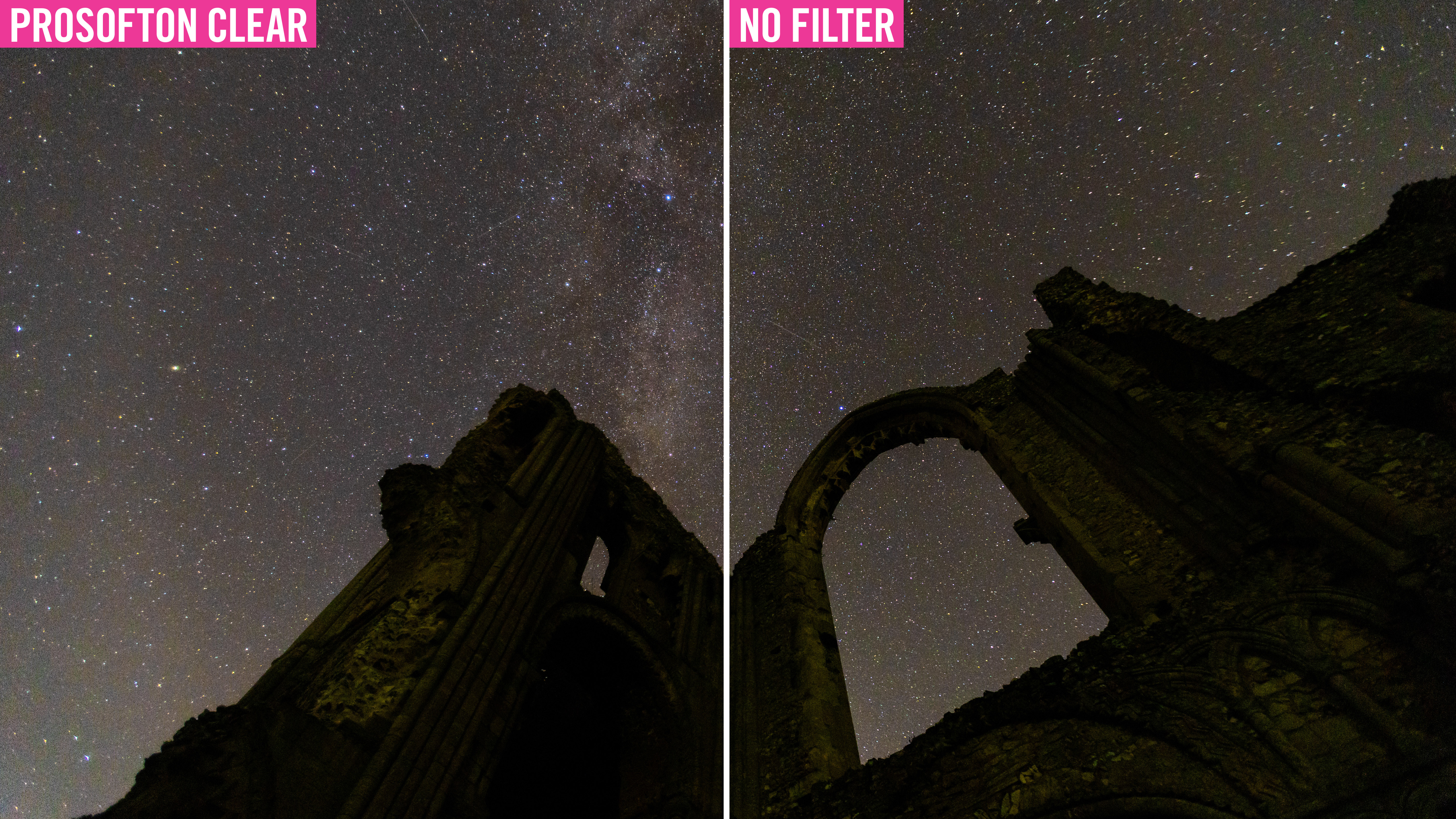
It's worth noting that although designed for astrophotography, the Prosofton Clear (W) doesn't feature any sort of light pollution cut. Instead, Kenko recommends it is paired with a light pollution cut filter, or instead use the Kenko Starry Night filter which combines both a soft effect with light pollution cut all in one. However, it's also over twice the price at $110/£114 for the largest 82mm version.
This is a bit disappointing as we'd really rather have one filter that can do it all, rather than stacking filters together which is not only more expensive but will degrade image quality and could cause problems with vignetting at wider focal lengths.
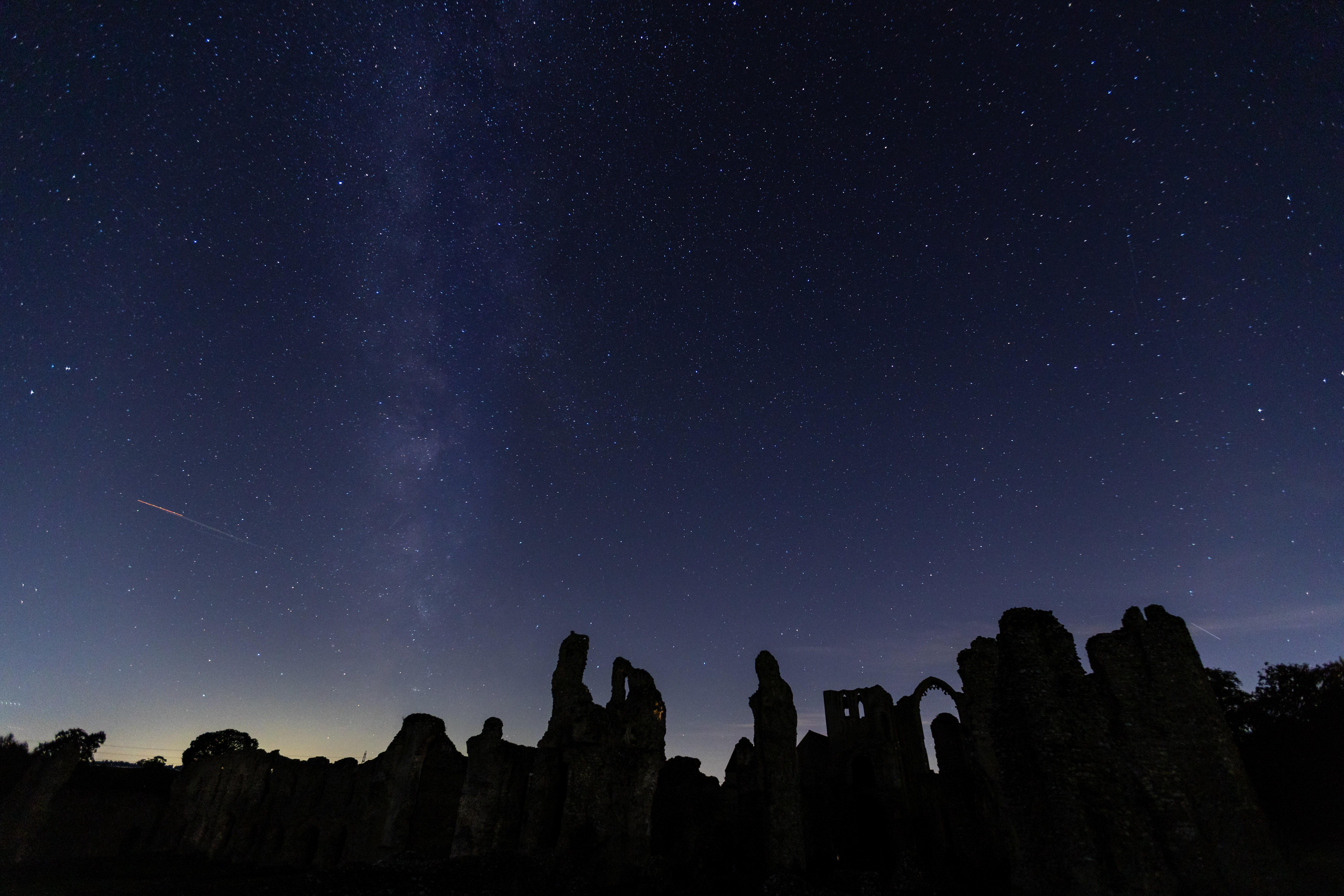
With no light pollution cut featured this meant there wasn't much change to the yellowish tinge on the horizon from sodium-vapor street lamps in the distance
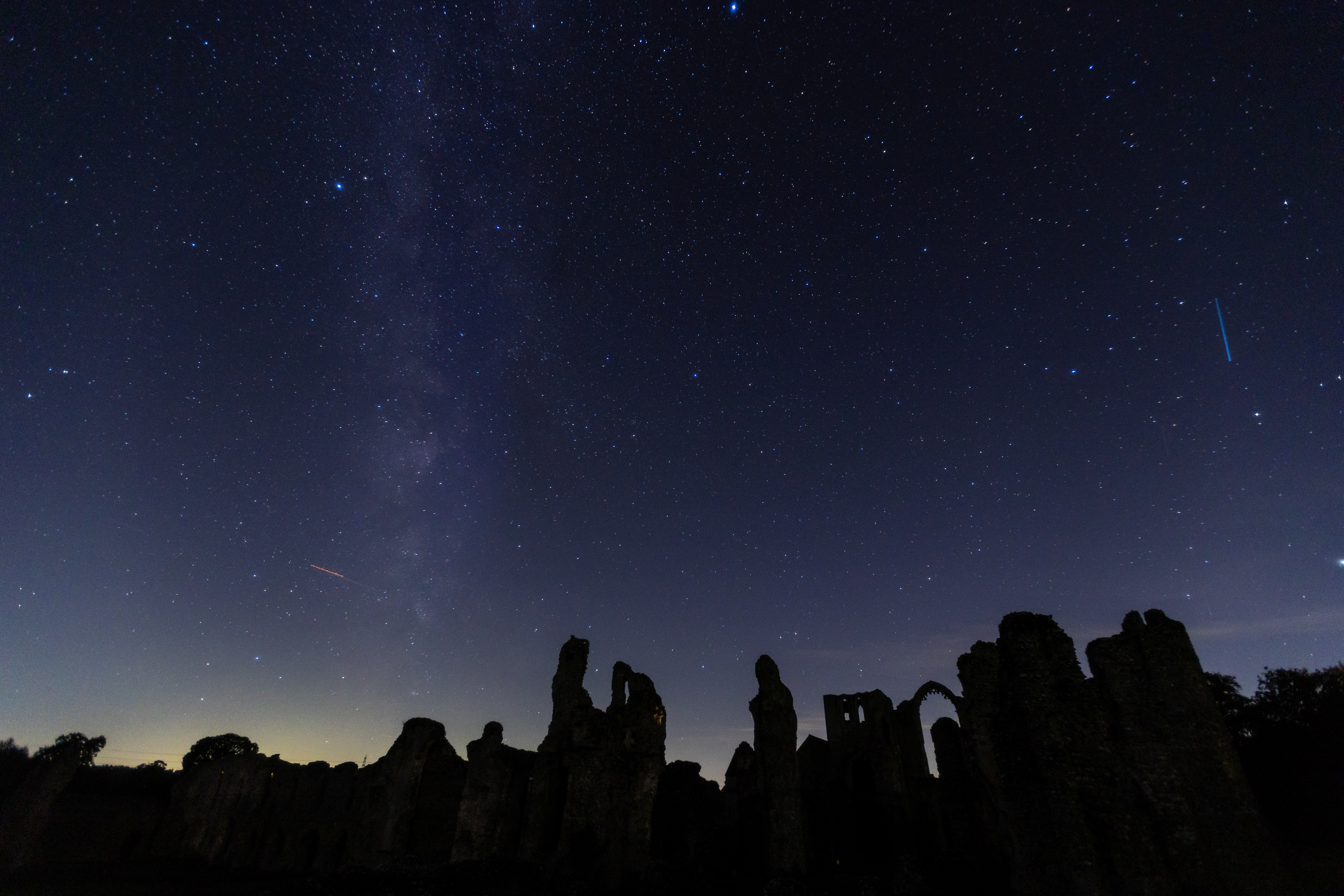
With no light pollution cut featured this meant there wasn't much change to the yellowish tinge on the horizon from sodium-vapor street lamps in the distance
In these test shots, I used a wide-angle Canon EF 16-35mm f/2.8L II USM lens mounted to my test Canon EOS R6 Mark II via a Canon EOS R-EF mount adapter and pointed it directly at the galactic core overhead. I gave both RAW files identical treatment in Adobe Camera Raw and there's a negligible difference to the Milky Way. However, some of the larger stars have been diffused nicely by the Prosofton filter making them bigger and therefore more clear to see.
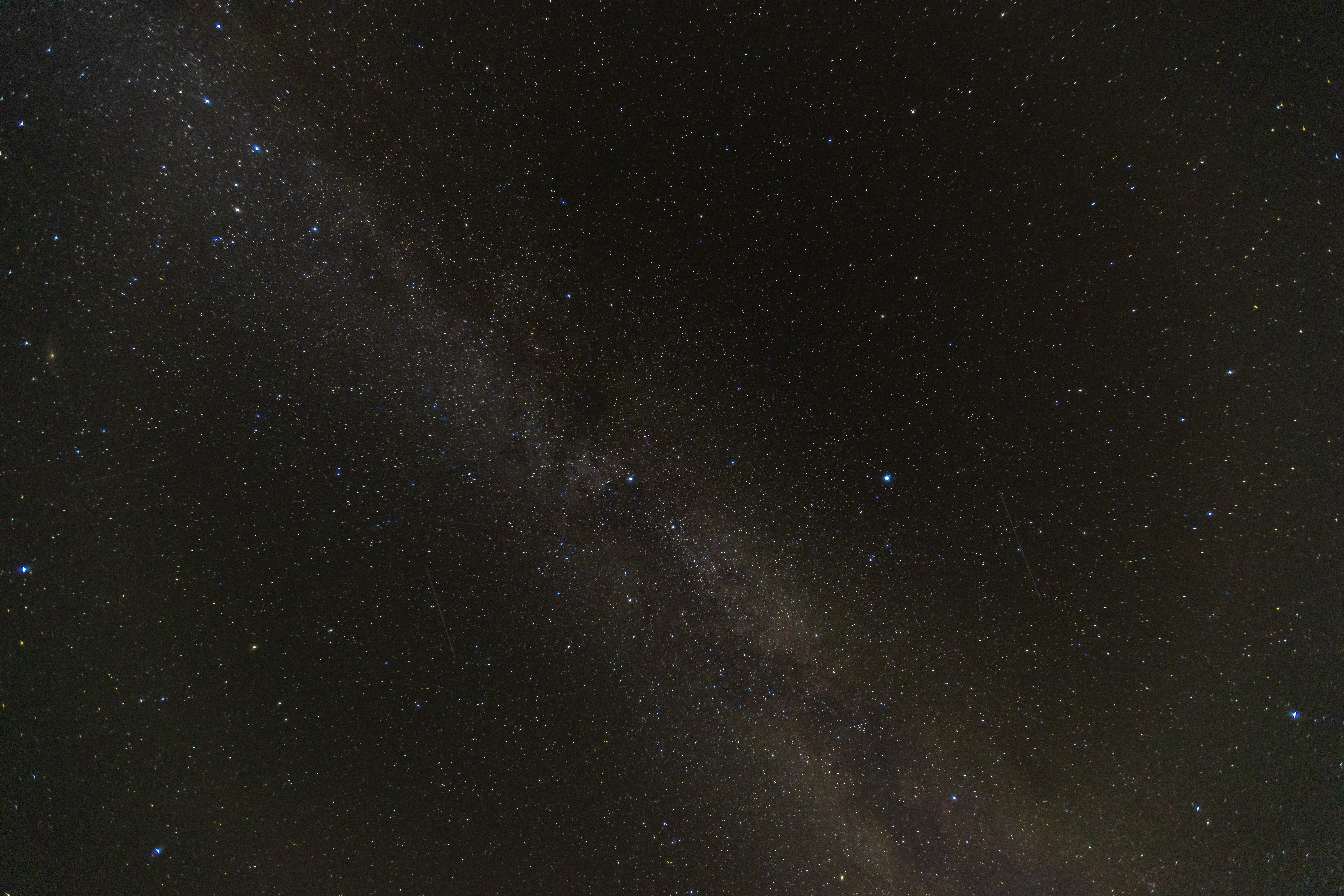
Test shot taken with the Kenko Prosofton Clear (W). The Milky Way is about as prominent as in the original image, however bright stars appear about four times brighter
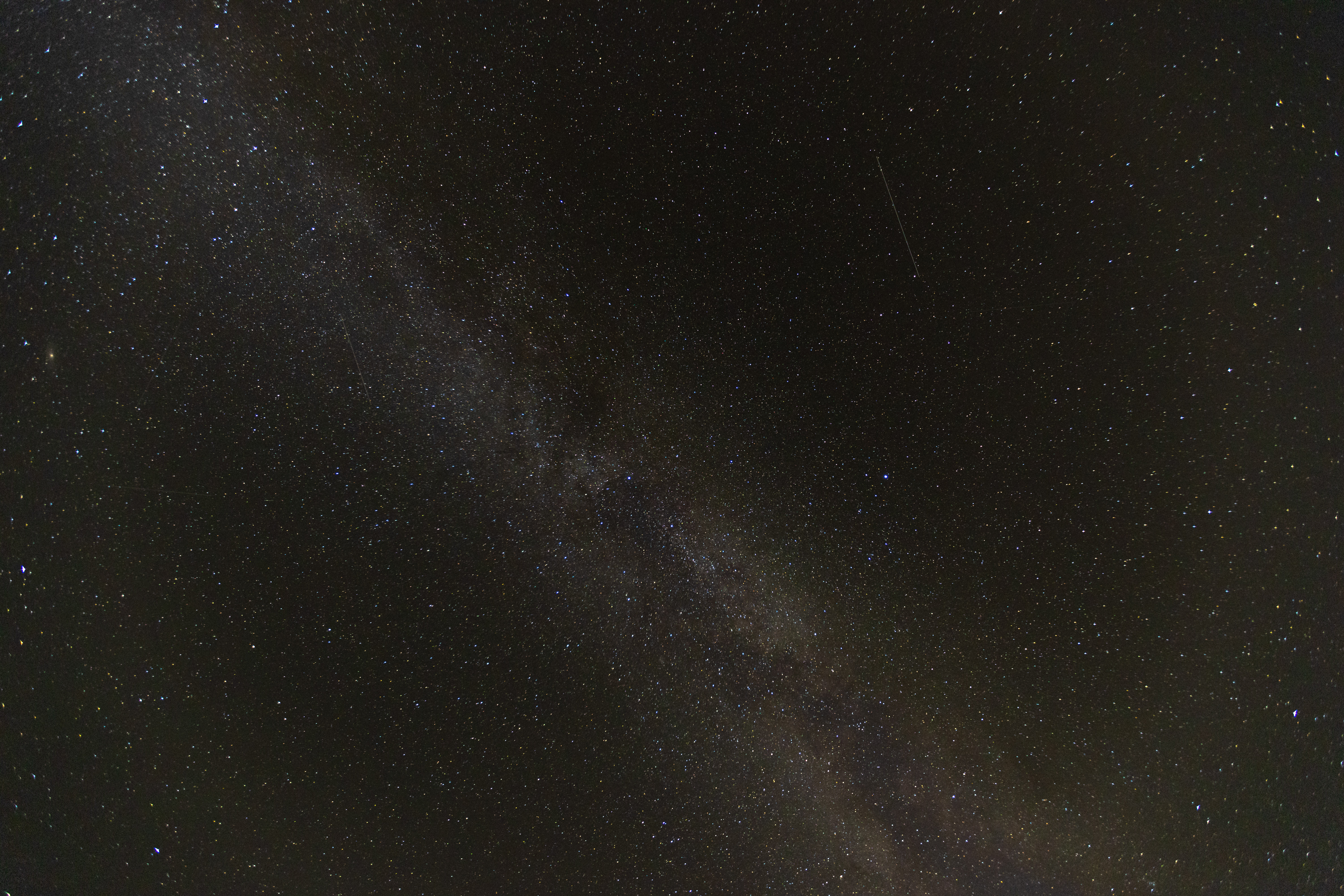
Test shot taken with no filter attached. The Milky Way is about as prominent, but bright individual stars appear more faint
When my local fair was in town I wanted to head out to capture the fairground lights reflecting in puddles due to heavy rain. I didn’t have a UV filter to hand so used the Prosofton Clear (W), if only to keep the rain off the front of my lens.
It also had the positive benefit of blurring the fairground lights in a similar way to the Kenko Black Mist No.1, albeit not quite as strong of a diffusion effect but still very pleasing, producing images with a dream-like quality to them (below).

With no UV filter to hand I headed to my local fair with the Prosofton Clear attached to protect my lens from the rain. Its softening qualities also had a brilliant diffusion effect on the bright lights and acted a bit like Kenko's Black Mist filters giving the fairground lights a beautiful diffused glow
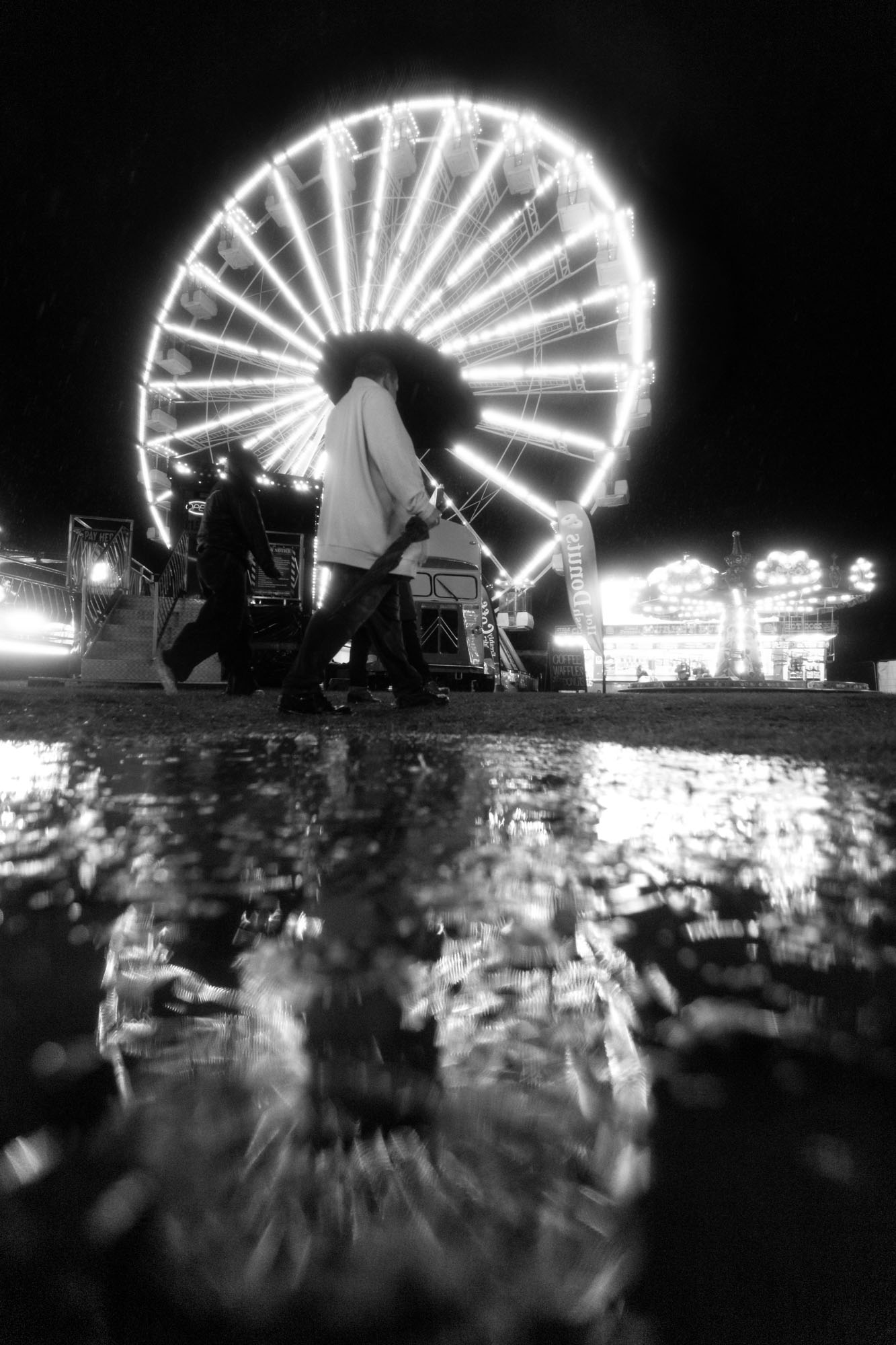
With no UV filter to hand I headed to my local fair with the Prosofton Clear attached to protect my lens from the rain. Its softening qualities also had a brilliant diffusion effect on the bright lights and acted a bit like Kenko's Black Mist filters giving the fairground lights a beautiful diffused glow
Looking closely at the surface of the Prosofton Clear reveals quite a notable mottled pattern on the glass compared to the Black Mist No.1, however, the Black Mist has a more washed-out grey hazy sheen across its glass and the Prosofton is more clear to look through.
Kenko Prosofton Clear Verdict
It's hard to knock the Kenko Prosofton Clear PRO1D (W) filter as it does everything it sets out to achieve. In a backward way by softening the image, it does produce bigger and brighter stars. While it's not going to revolutionize your astro photos, and its effect on our galactic core was rather negligible, it does make singular stars larger and more prominent in the night sky.
Ideally, any filter primarily designed for astrophotography should have a light pollution cut to help reduce the glow of street lamps on the horizon and boost contrast, such as in Kenko's more expensive Starry Night Prosofton filter which is both a light pollution cut and softening filter in one. However, I appreciate that leaving this feature out helps Prosofton Clear PRO1D (W) keep an attractively low price point.
The Prosofton Clear (W) does however score heavily for its premium build quality, materials, and image quality – despite being a soft filter, the foreground of images is rendered nice and sharp and isn't turned into an unusable blurry mess. It's also packed to the rafters with handy features to cut down on internal reflections and is a versatile option not only for astrophotography but cityscapes and portraits too.
If you want a filter that can do all of this then the Prosofton Clear (W) is the filter for you, if however you also need a light pollution cut you'll be better off with the Kenko Starry Night Prosofton filter, and photographers using lenses with a rear filter mount will need Kenko's sheet style Prosofton Clear filters instead.
| Features | The Kenko Prosofton Clear PRO1D (W) features a low profile, anti-reflective coating but lacks water repellence and light pollution cut. | ★★★★☆ |
| Design | Made in Japan, this high-quality design features a low-profile aluminum frame, durable hard case, and an easy-to-grip knurled rim. | ★★★★★ |
| Performance | The Prosofton Clear (W) enhances stars' brightness without compromising foreground details, outperforming other softening filters in image quality. | ★★★★★ |
| Value | The Prosofton Clear (W) is affordable and versatile for various photography but lacks light pollution cut for astrophotography. | ★★★★☆ |
Should you buy the Kenko Prosofton Clear PRO1D (W) filter?
✅ Buy this if...
- You want to make bright stars in the night sky appear even brighter
- You need a soft diffusion filter for astro, cityscapes and portraiture
🚫 Don't buy this if...
- You want an astro filter which can cut out light pollution, you'll need the more expensive Kenko Starry Night
- You have a lens which takes rear filter sheets as you'll need the Kenko Rear Prosofton Set instead
Alternatives

Deputy Editor on PhotoPlus: The Canon Magazine, Dan also brings his technical wizardry and editing skills to Digital Camera World. He has been writing about all aspects of photography for over 10 years, having previously served as technical writer and technical editor for Practical Photography magazine, as well as Photoshop editor on Digital Photo.
Dan is an Adobe-certified Photoshop guru, making him officially a beast at post-processing – so he’s the perfect person to share tips and tricks both in-camera and in post. Able to shoot all genres, Dan provides news, techniques and tutorials on everything from portraits and landscapes to macro and wildlife, helping photographers get the most out of their cameras, lenses, filters, lighting, tripods, and, of course, editing software.
